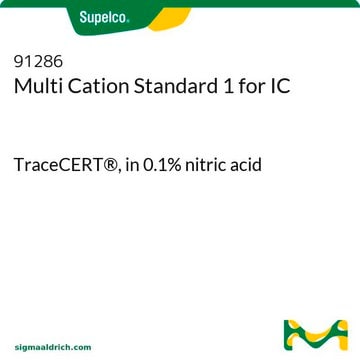08953
1-Bromobutane
analytical standard
Sinónimos:
Butyl bromide
About This Item
Productos recomendados
grade
analytical standard
Quality Level
vapor density
4.7 (vs air)
vapor pressure
150 mmHg ( 50 °C)
40 mmHg ( 25 °C)
assay
≥99.5% (GC)
autoignition temp.
509 °F
shelf life
limited shelf life, expiry date on the label
expl. lim.
2.8-6.6 %, 100 °F
technique(s)
HPLC: suitable
gas chromatography (GC): suitable
refractive index
n20/D 1.439 (lit.)
n20/D 1.440
bp
100-104 °C (lit.)
mp
−112 °C (lit.)
density
1.276 g/mL at 25 °C (lit.)
application(s)
environmental
format
neat
SMILES string
CCCCBr
InChI
1S/C4H9Br/c1-2-3-4-5/h2-4H2,1H3
InChI key
MPPPKRYCTPRNTB-UHFFFAOYSA-N
¿Está buscando productos similares? Visita Guía de comparación de productos
General description
Application
signalword
Danger
Hazard Classifications
Aquatic Chronic 2 - Carc. 2 - Flam. Liq. 2 - Repr. 1B - Skin Irrit. 2 - STOT RE 2 - STOT SE 3
target_organs
Liver, Respiratory system
Storage Class
3 - Flammable liquids
wgk_germany
WGK 2
flash_point_f
50.0 °F - closed cup
flash_point_c
10 °C - closed cup
ppe
Eyeshields, Faceshields, Gloves, type ABEK (EN14387) respirator filter
Elija entre una de las versiones más recientes:
¿Ya tiene este producto?
Encuentre la documentación para los productos que ha comprado recientemente en la Biblioteca de documentos.
Los clientes también vieron
Nuestro equipo de científicos tiene experiencia en todas las áreas de investigación: Ciencias de la vida, Ciencia de los materiales, Síntesis química, Cromatografía, Analítica y muchas otras.
Póngase en contacto con el Servicio técnico
















